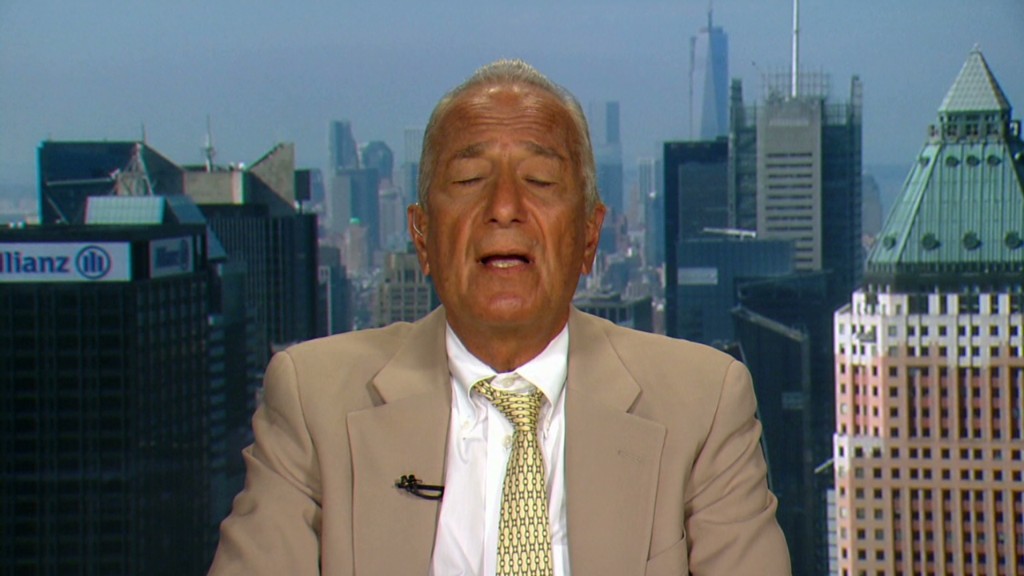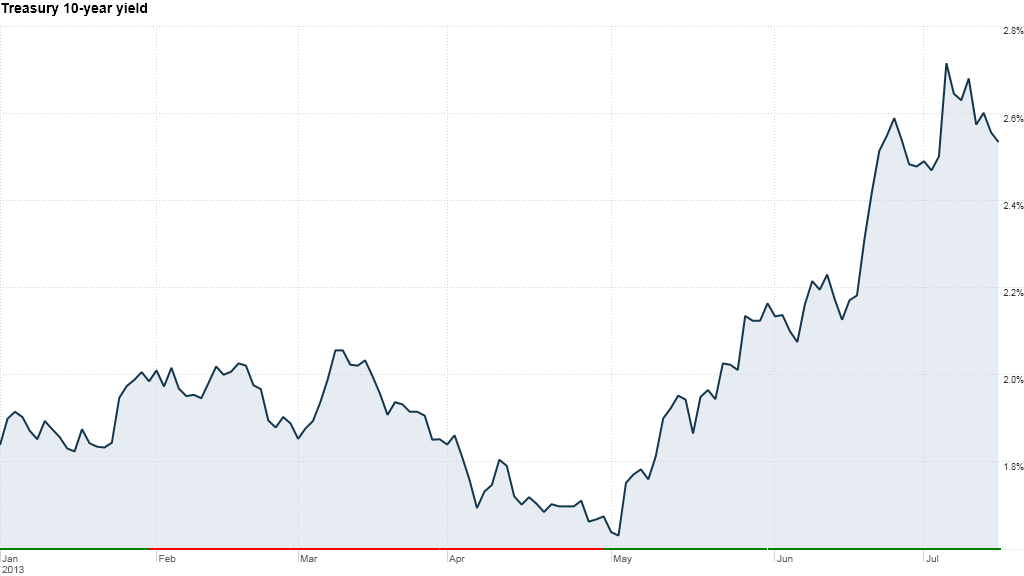It's no secret that investors have been bailing out of bonds during the past couple of months, but panicky investors should think twice about cashing out.
Financial adviser John Foxworthy of Phillips Financial has been been receiving a flood of calls from clients worried about losses in what they consider the safest part of their portfolio.
"After a 30-year bull market in bonds, it's been difficult for clients to see interest rates climb and bond values decline," he said.
But Foxworthy says if they sell now, they'll be worse off than if they just stand pat.
According to a study conducted by Phillips Financial, the Barclays Aggregate Bond Index, which tracks a variety of U.S. investment grade bonds, has delivered only two years of negative total returns during the past 40 years (1994 and 1999). That's despite several periods of sharp interest rate increases, particularly in the late 1970s.
But investors who held onto their bonds during the years that the market declines occurred recovered their losses and booked gains "within a reasonable time."
Related: Rising rates won't end the stock market party
The recent decline in bond prices, and corresponding spike in yields, was triggered by a looming shift in policy by the Federal Reserve. Fed chairman Ben Bernanke first hinted in May that the central may trim back on its bond purchase program if the economic recovery continues.
That suggestion spooked bond investors, sending the 10-year yield surging to 2.5% from 1.6% in just a few weeks.
The Barclays U.S long-term bond index lost 6% during the second quarter. Short-term bonds also took a hit, albeit far less severe, with the Barclay's U.S. 1-5 year government bond index losing less than 1%.
Foxworthy has been trying to reassure his clients that the losses they're seeing are merely paper losses at this stage.
Barring any defaults -- unlikely in the case of the U.S. treasuries -- individual bonds and those in a mutual fund portfolio will mature for their full original issue value.
Related: Gold: Time to buy now?
While Foxworthy doesn't recommend buying more bonds, he points out that there aren't any better alternatives.
"I've been reminding my clients why we own bonds in the first place: to preserve capital, to generate income and growth through reinvesting that income, and relative steadiness," said Foxworthy.
Cash? The puny returns won't even keep pace with inflation, he said. Stocks? They are way more volatile, he noted.
"The losses that occurred in the stock market in just a few days were greater than the bond losses we've seen since the beginning of the year," Foxworthy added.
And for bond mutual fund holders, Foxworthy says there's a good chance that fund managers will bring new bonds with higher interest rates into those portfolios. And over time, the increasing income from the new, higher-yielding bonds will help offset the current paper losses, he said.
Related: Higher interest rates: A bitter pill for banks
Christine Benz, director of personal finance at Morningstar, agreed that "panic-selling bonds" would be a mistake.
"Investors that have been selling recently might have been doing themselves a disservice because yields have steadied and bonds are performing pretty well," she said.

According to Benz, investors who have longer time horizons can still afford to have intermediate and long-term bonds in their portfolio, as well as riskier ones like junk bonds or emerging markets bonds.
But anyone who needs the money soon should be hunkered down in short-term bonds since they are much safer in a rising interest rate environment.
"It's hard to say what will happen next, but it's clear that investors have become complacent about bonds, following three decades of strong returns," said Benz. "But bonds are no longer a return engine. Investors shouldn't be taking risks in the bond side of their portfolio, and should instead begin to view it as the low-returning, but stable part of their portfolio."



